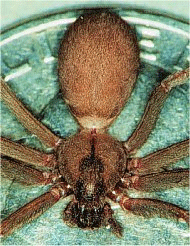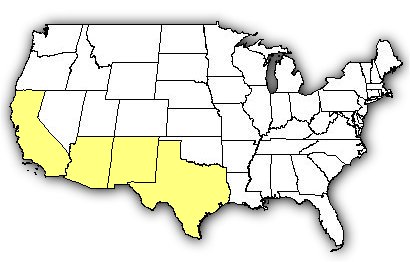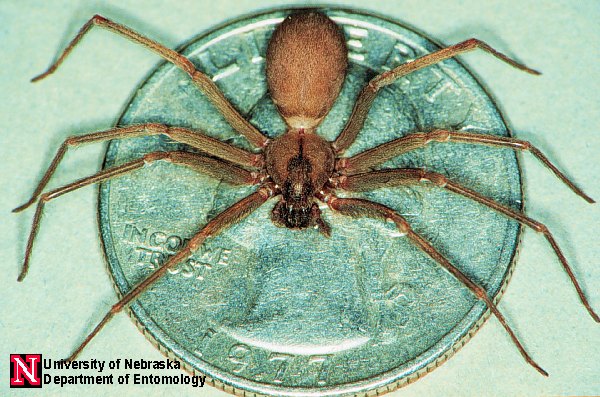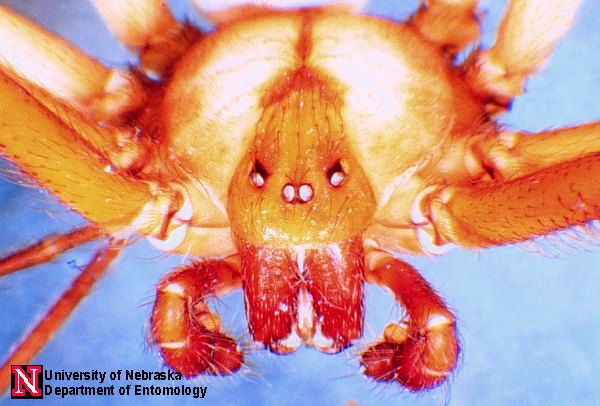ARIZONA RECLUSE

Photo emphasizing the violin pattern.
Created from original photo below
© Jim Kalisch
Department of Entomology, UNL
Scientific name
Loxosceles arizonica
Size
The average size of mature Arizona Recluse spiders is approximately 1/3 of an inch, with a leg span of 1 to 1.5 inches. Male and female are similar in size.
Description
Arizona Recluse spiders are generally yellowish-brown to brown in color, with a darker colored violin shape on the top of the cephalothorax (not the abdomen). The violin is easy to see in the photos on this page. The abdomen is a uniform color, with no markings on it.
Arizona Recluse spiders, and the other related recluse spiders, have six eyes arranged in three pairs of two. This is a rather unique feature, as most spiders have eight eyes. A magnified view of the eyes can be seen in a photo below.
Distribution
The Arizona Recluse is only found in Arizona, California, New Mexico, and Texas. Outside of the United
States, the Arizona Recluse is found in Mexico.

Map does not show area of true distribution, only the states in which there is a population.
Actual distribution in any highlighted state may be limited.
Notes
The Arizona Recluse is known to have a necrotic bite. This means that the bite causes severe damage to the skin and surrounding tissue, resulting in a large open sore, called a necrotic lesion, that takes a long time to heal.
Often the Recluse spiders are called Violin Spiders or Fiddleback Spiders, because of the characteristic violin marking. They are also called Brown Spiders in some areas.
Below is a photo of a Brown Recluse, which is similar in appearance to the Arizona Recluse. Note
the violin marking that is found on many recluse spiders, including the Arizona Recluse.

Photo used by permission:
© Jim Kalisch
Department of Entomology, University of Nebraska-Lincoln
Magnified eyes of a recluse spider. Note there are only six eyes, arranged in three pairs.
Most spiders have eight eyes.

Photo used by permission:
© Jim Kalisch
Department of Entomology, University of Nebraska-Lincoln
For more information on dangerously venomous spiders, please see the Venomous Links page.
Terms and Conditions | Privacy Policy
Change your Cookies Preferences
